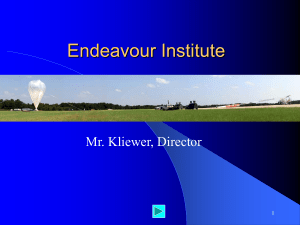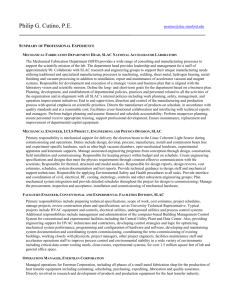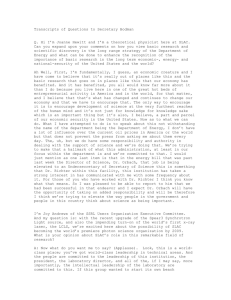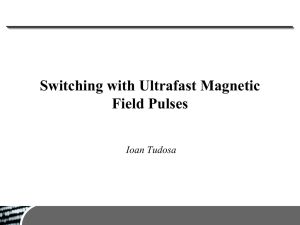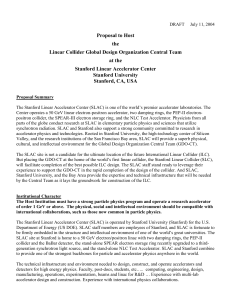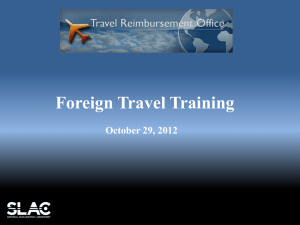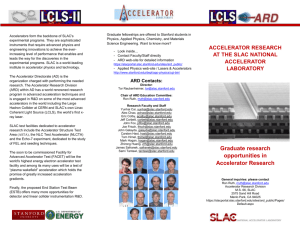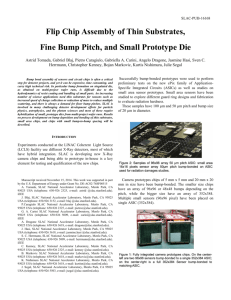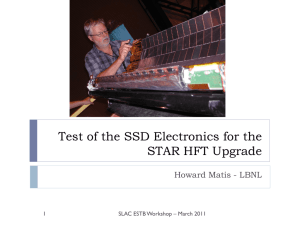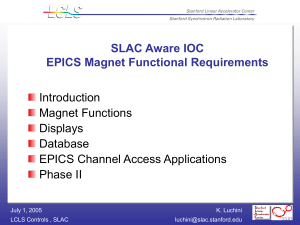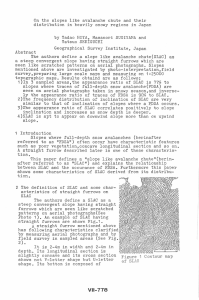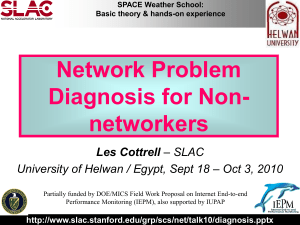SciDoc Electronic Registration Form
advertisement
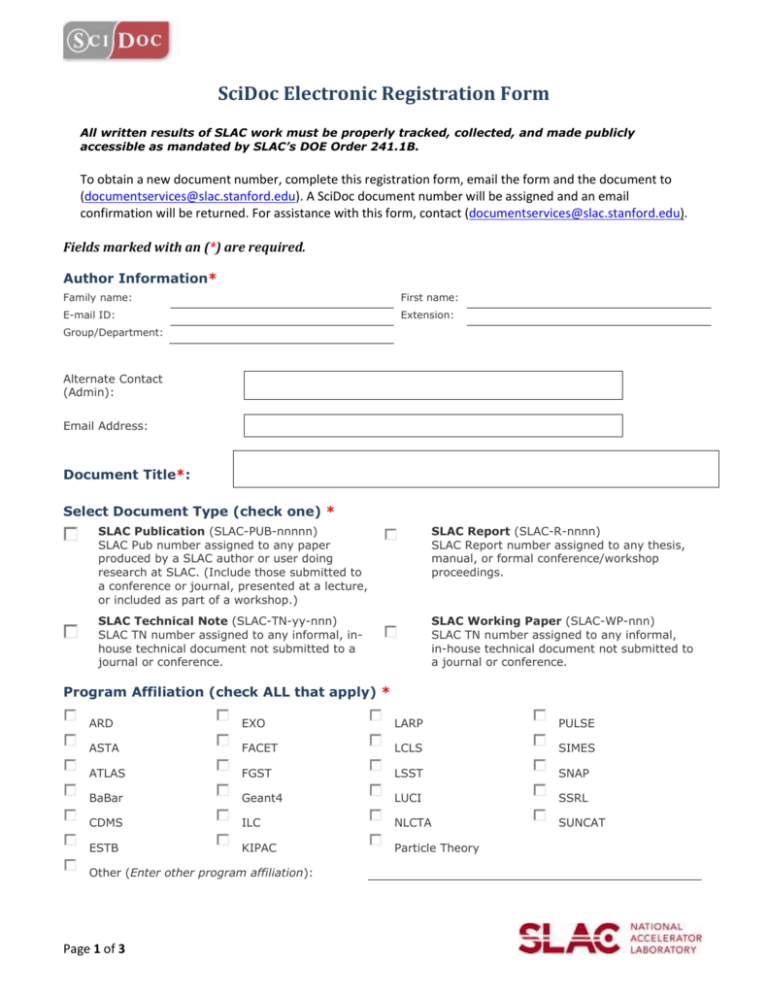
SciDoc Electronic Registration Form All written results of SLAC work must be properly tracked, collected, and made publicly accessible as mandated by SLAC’s DOE Order 241.1B. To obtain a new document number, complete this registration form, email the form and the document to (documentservices@slac.stanford.edu). A SciDoc document number will be assigned and an email confirmation will be returned. For assistance with this form, contact (documentservices@slac.stanford.edu). Fields marked with an (*) are required. Author Information* Family name: First name: E-mail ID: Extension: Group/Department: Alternate Contact (Admin): Email Address: Document Title*: Select Document Type (check one) * SLAC Publication (SLAC-PUB-nnnnn) SLAC Pub number assigned to any paper produced by a SLAC author or user doing research at SLAC. (Include those submitted to a conference or journal, presented at a lecture, or included as part of a workshop.) SLAC Report (SLAC-R-nnnn) SLAC Report number assigned to any thesis, manual, or formal conference/workshop proceedings. SLAC Technical Note (SLAC-TN-yy-nnn) SLAC TN number assigned to any informal, inhouse technical document not submitted to a journal or conference. SLAC Working Paper (SLAC-WP-nnn) SLAC TN number assigned to any informal, in-house technical document not submitted to a journal or conference. Program Affiliation (check ALL that apply) * ARD EXO LARP PULSE ASTA FACET LCLS SIMES ATLAS FGST LSST SNAP BaBar Geant4 LUCI SSRL CDMS ILC NLCTA SUNCAT ESTB KIPAC Particle Theory Other (Enter other program affiliation): Page 1 of 3 SciDoc Electronic Registration Form Document Research & Funding Document Topics (check ALL that apply) * Accelerator Physics Accelerators (control systems) Astrophysics Bio-life Sciences Chemistry Computing Earth Sciences Engineering Environment Sciences Gravitation and Cosmology HEP Experimental Results HEP Phenomenology HEP Theory Instrumentation/Development Math and Math Physics Material Sciences Medical Applications Optics General Physics, Other Physics Polymers Safety Synchrotron Radiation X-Ray Free Electron Laser Other: Funding Source (check ALL that apply) * DOE SC (US DOE Office of Science) HEP (High Energy Physics) ASCR (Advanced Scientific Computing Research) LDRD (Laboratory Directed Research and Development) BES (Basic Energy Sciences) NIH (National Institutes of Health) BER (Biological and Environmental Research) NSF (National Science Foundation) FES (National Science Foundation) NASA (National Aeronautics and Space Administration) Other: Funding Attribution(s): Proposal Information Proposal #: Funding Attribution(s): Principal Investigator(s) / Scientific Lead * First Name: Last Name: Email: First Name (Add Additional PI): Last Name: Email: First Name (Add Additional PI): Last Name: Email: First Name (Add Additional PI): Last Name: Email: First Name (Add Additional PI): Last Name: Email: Page 2 of 3 SciDoc Electronic Registration Form Patent Review * SLAC's contract mandates that STI documents be reviewed for potentially patentable information prior to being made publicly accessible. Please review the document against SLAC's patent review criteria, and select the criteria below. For questions regarding Patent Review, please contact (iprp-l@slac.stanford.edu). Document does NOT meet the patent review criteria. Document MAY meet the patent review criteria. Patent Review Criteria - To determine whether a document contains potentially patentable information, please use the following guidelines. To be potentially patentable, the invention must be: Novel - An invention that is new and must be the inventor's original work. In the U.S., a new invention is defined as useful and non-obvious, has not been published at all, or not published for more than a year. In patent law, the word publication, when used in the typical research community (i.e., in a journal); can include abstracts or presentations. SLAC is not required to report abstracts to the DOE. Non-obvious - A patentable invention must be non-obvious" to someone of "ordinary skill in the art. This persona is a hypothetical reference to someone knowledgeable in the field who can understand the invention and has access to the relevant prior art. Non-obviousness describes the concept of unexpected results. An invention can be non-obvious if it is a combination of old elements used in a new way to produce a new result. Useful - An invention is useful if it has some qualitative benefit. Additional Information Conference Information Is the document being submitted to a conference? Conference Name? Conference Location: Conference Start Date: Conference End Date: The purpose of the conference paper was: An Invited talk A Presented A Contribution Journal Information Is the document is being submitting to a journal? If the journal name being submitting does not appear in the drop-down menu, please enter the journal name in the field marked "Other". Other (fill in textbox below ) Other Journal Publication Date: Page 3 of 3 mm/dd/yyyy arXiv Number:
